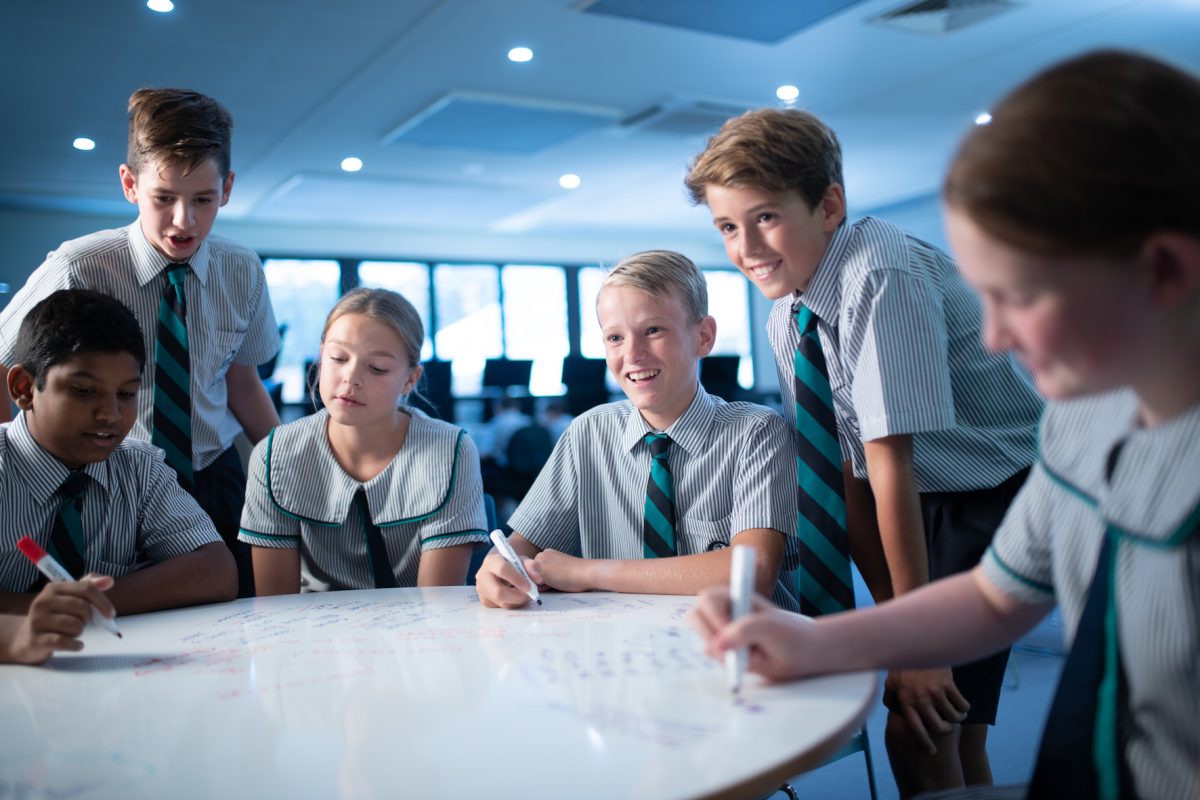Do you know how you learn best? Are you aware of barriers you need to overcome to reach your potential? And do you set goals to improve?
Secondary School students at Flinders are becoming expert at asking themselves such questions and at reflecting on the answers!
This year, every student across Years 7 to 12 is being guided to develop a personalised ‘Learner Profile’ as part of our College’s proactive approach to quality teaching and learning. A Learner Profile helps to identify a student’s skills, strengths, and interests, as well as highlight potential barriers to learning.
The College’s main aim is for students to realise that excellence in learning and life isn’t just about exam results and ATAR numbers, but about building your personal character and competencies, and contributing to a better world.
To discover their learner profiles, students at Flinders are working through a variety of validated, research-based surveys during homeroom lessons. The surveys are focused on each of the 21st century skills of Communication, Collaboration, Creativity, Citizenship, Character and Critical Thinking; known as the Flinders Traits.
Once students receive the survey results, they use information sheets that outline the characteristics of each domain to set their own improvement goals within the ‘Track One’ database. The goals will become available for parents to read later this term. The next step is for students to join one of the many co-curricular clubs or opportunities at Flinders that will directly enable them to achieve their goals.
Teachers at Flinders also use Learner Profiles to build strong relationships with students and understand things from their perspective. Profile information informs lesson planning with the goal of boosting student engagement and outcomes.
The qualitative information that informs a Learner Profile typically includes a broad range of data: demographic, student interests, learning preferences, descriptions of preferred learning environment, inter- and intra-personal skills, existing competencies and those that need to be developed (in the personal, social-emotional, academic and career arenas).
For example, students in Years 9 to 12 have responded to surveys targeting their ‘Communication’ competencies. Students completed the Goleman’s Emotional Intelligence model, which aims to explore one’s ability to perceive and regulate emotions so as to promote emotional and intellectual growth. Students have received feedback under the five general competencies; self-awareness, self-regulation, self-motivation, social awareness and social skills.
Meanwhile, Years 7 and 8 students completed a survey to identify their preferred thinking style of the four distinct approaches: emotional, analytical, structural and strategic. The survey used Hermann’s Brain Dominance Instrument (targeting Creativity and based on the work of Kolb) giving students feedback around their most and least dominant quadrants. Students were provided with information around the general characteristics and learning preferences as theorists, organisers, humanitarians or innovators.
What is powerful about this process is that students at Flinders are becoming aware that 21st century skills are associated with the growth in cognitive, interpersonal and intrapersonal domains. Traditionally, cognitive competencies have been regarded as key indicators for success and in a changing world, employers are increasingly valuing these ‘softer’ skills.
Interpersonal and intrapersonal competencies, comprising personal traits, attitudes and motivations, have a strong relationship with a student’s capacity in overcoming challenges to achieve ongoing success and an awareness of how they learn is essential for this success in a future world.
Future testing instruments will collect data related to students’ approaches to study, preferred team role, global citizenship and civic attitudes, personality type, critical thinking dispositions, ethical behaviours and social, emotional and intercultural skills.
The end goal of the Learner Profile process is that our students will get to know more about themselves and find ways to continue to improve. Our teachers will also get to know individual students and their preferences and be able to use the rich data sets in a variety of ways, including group construction and activity development. It’s a fascinating journey that will give our students valuable skills for life.
Greg Blanch | Head of Analytics and Academic Performance

